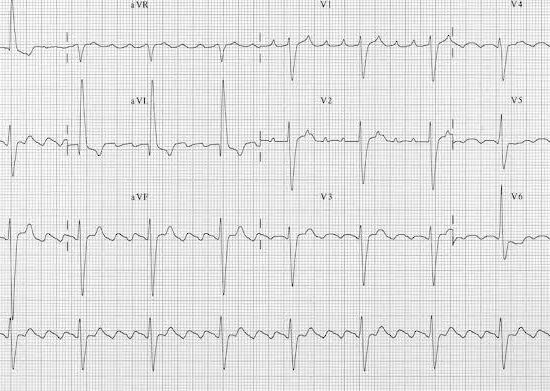Does Flu Vaccine Reduce Heart Attack Risk?
The flu vaccine is a vaccine given to protect against the influenza virus. Flu can cause serious health problems, especially for the elderly, children and individuals with chronic diseases. There are some important connections between heart health and the flu vaccine:
Reducing the Risk of Heart Diseases: Flu may increase the risk of heart attack and other cardiovascular events in individuals with heart disease. The flu vaccine can help reduce this risk.
Infections and Heart Health: Viral infections, such as the flu, can affect the heart muscle, leading to problems such as heart failure. Vaccination helps protect heart health by protecting against such infections.
Chronic Disease Management: Individuals with heart disease or other chronic diseases are recommended to get the flu vaccine. This can improve their overall health by reducing the risk of infection.
Are there statistics on how much the flu vaccine reduces the risk of heart attack?:
There is some research on the effect of the flu vaccine on reducing the risk of heart attack. In general, the positive effects of the flu vaccine on heart health can be summarized as follows:
Studies: Some studies have found that individuals who have received the flu vaccine have a 30-50% lower risk of heart attack than those who have not been vaccinated. These effects may be especially pronounced in people with heart disease.
Role of Infections: Viral infections, such as the flu, can increase inflammation in the body, increasing the burden on the heart. The flu vaccine may indirectly reduce the risk of heart attack by helping prevent these infections.
Cardiovascular Health: The flu vaccine is thought to have a protective effect in preventing cardiovascular events, especially in individuals at high risk of heart disease.
Are there any special risks of the flu vaccine for those with heart failure?:
There are some special risks and cautions regarding the flu vaccine for individuals with heart failure:
Vaccine Reactions: Although the flu vaccine is generally safe, some people may experience allergic reactions or side effects to the vaccine. It is important for individuals with heart failure to be informed about possible side effects after vaccination.
Vaccination Timing: It is recommended that individuals with heart failure receive the flu vaccine before the flu season begins, usually in the fall. However, due to the current health situation, it would be beneficial to consult a doctor about the timing of vaccination.
Emergencies: Some individuals may develop fever, malaise, or other symptoms after the flu vaccine. For patients with heart failure, these symptoms may affect their current condition. Therefore, post-vaccination monitoring is important.
Interaction with Other Vaccines: Some medications used to treat heart failure may affect the effectiveness or side effects of vaccines. Therefore, it is important to communicate with the doctor during the treatment process.
In general, the flu vaccine is recommended for individuals with heart failure, but it is important to consult a healthcare professional before vaccination. This helps determine the best approach to suit the individual health situation.
For which people with heart diseases is the flu vaccine more important:
The flu vaccine is especially important for people with the following heart diseases:
Chronic Coronary Artery Disease: In this condition, which occurs as a result of narrowing or blockage of the heart vessels, flu infection can increase the risk of heart attack.
Heart failure: This condition occurs when the heart cannot pump enough blood the body needs. Flu can worsen this condition.
Arrhythmia (Irregular Heartbeats): In individuals with arrhythmia problems, the flu can make their heartbeats more irregular.
Previous Heart Attack or Stroke: People who have experienced such events before can reduce their chances of experiencing them again by reducing the risk of infection with a flu vaccine.
Cardiomyopathy: If the heart muscle is weakened or thickened, the flu vaccine is important to prevent infections.
Advanced Age: Individuals aged 65 and over have a higher risk of heart disease; Therefore, influenza vaccination is recommended.
Getting a flu vaccine for individuals in this group helps protect their heart health by reducing the risk of infection. However, it is important to consult a healthcare professional for information about any vaccinations or health conditions.
It is important to consult a healthcare professional for more information about the flu vaccine and recommendations tailored to your individual health situation.






